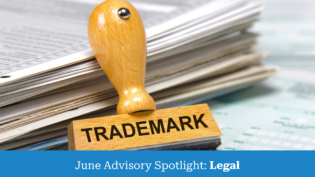
Unfortunately, seeking compensation after getting injured on the job is often complex, with many nuances that can negatively impact a claim if not handled properly.
For employees at H-E-B, a large grocery store chain, there are unique considerations while working in Texas specifically, because H-E-B does not carry standard workers’ compensation insurance. They are non-subscribers under Texas law. This means that the company operates an approved non-subscriber injury benefit program. This leads to critical differences in how claims must be handled versus most other Texas employers.
Even small missteps can greatly reduce the amount received or result in a denial of the claim altogether.
Failing to Report the Injury Properly
Perhaps the most damaging yet prevalent mistake injured H-E-B workers make is failing to properly report the work-related injury from the outset. Texas has strict statutes of limitations in place regarding reporting timing, so prompt notification and documentation is imperative.
Why Immediate Reporting Matters
There are two important time limitations set by Texas law regarding non-subscriber employers like H-E-B:
30-Day Initial Notification Deadline
You generally must notify your H-E-B manager or supervisor within 30 days of the actual date of injury.
1-Year Claim Filing Deadline
You typically need to submit the full claim itself within one year of the injury date, although some exceptions occasionally apply.
Failing to report the injury within these designated timeframes can instantly nullify your claim regardless of merits or circumstances.
For example, if you hurt your back lifting heavy boxes in the warehouse on January 1st but did not tell your manager until February 15th, the 30-day notification window has already closed. At that point, H-E-B could outright deny the claim solely based on late reporting.
Similarly, if you notified your supervisor of a slip-and-fall accident on March 15th as required but did not actually file the injury claim with H-E-B until the following year on March 20th, your case could still be rejected due to missing the strict 1-year deadline.
These rigid notification rules exist because as a non-subscriber, H-E-B faces strong financial incentives to limit claim payouts. If they are not informed promptly about incidents, H-E-B loses critical opportunities to investigate, identify hazards, and mitigate potential liabilities. Late reporting essentially robs them of the ability to defend against allegations and disputes.
As a result, H-E-B relies heavily on technicalities like reporting deadlines to contest claims. Injured workers must understand these strict notification windows and file paperwork on time to preserve their rights. Otherwise, H-E-B has an easy, legitimate way to deny claims regardless of merits.
Some H-E-B employees also make the mistake of downplaying or outright hiding minor injuries, thinking they are not serious enough to require formal reporting. However, without prompt medical examination, there is no way to confirm whether underlying damage exists. Small cuts can become infected, sprains may secretly be fractures, and slight soreness might be initial signs of disc herniation.
Additionally, the date of initial notification starts important legal clocks running for investigation and claim filing deadlines later. Reporting even seemingly insignificant incidents preserves your right to seek treatment and compensation should more severe issues emerge down the road.
In rare cases, the 30-day reporting window might be extended if there is a valid excuse for the exceptionally late notification. However, these exceptions are very narrow and strictly interpreted by claims administrators, so prompt notification is always the wisest approach.
What Constitutes Proper Reporting
Merely verbally telling a supervisor about an injury does not constitute proper reporting in most cases. Specific paperwork must be filled out per H-E-B company policy and procedures to create an official record of the incident. This documentation is critical for tracking details and initiating a formal investigation by H-E-B.
At a minimum, an “Employee Injury Report” must be completed providing information such as:
- Name and contact details
- Date, time, and location of injury
- Detailed description of how the accident occurred
- Nature and exact body location of the injury
- Names of witnesses, if any
- Whether medical treatment was required
Responsibility for completing and submitting the proper paperwork lies with H-E-B management. However, injured employees should still request the forms directly rather than waiting for supervisors to voluntarily offer them.
Proactively asking for injury reporting documents demonstrates personal initiative and also holds H-E-B accountable for meeting its obligations. If company representatives refuse to provide the forms, are excessively difficult to reach, or delay filing, seek outside legal guidance immediately.
As a non-subscriber, H-E-B faces less oversight incentives to fully cooperate with claim investigations. As a result, it is often advisable that anyone who is injured as an employee during work at H-E-B should seek help from a lawyer right after their injury so that they can intervene to ensure compliance with injury notification duties and preserve your rights.
Neglecting to Get Medical Treatment
Another common but equally damaging error H-E-B employees risk after being injured at work is failing to promptly seek medical treatment. Even seemingly minor incidents warrant examination to rule out underlying complications.
Delaying treatment also needlessly puts full recovery at risk. More importantly for non-subscriber claims, lack of early medical records leaves the door open for H-E-B to outright dispute whether any compensable injury even occurred.
Why Immediate Treatment Is Critical
There are several important reasons why obtaining initial medical evaluation quickly is vital after workplace injuries, including:
Prevent Outright Claim Denials
Most critically, failure to seek prompt medical attention allows H-E-B and its claims administrators to outright deny any compensable injuries occurred. If there is no early 3rd party verification of harm or impairments by a doctor, H-E-B can allege the incident did not actually result in damage.
Document Injuries Before Healing Occurs
An official medical report from the outset also documents later signs and symptoms stemming from the original incident before natural healing sets in. Without early verification, H-E-B may claim subsequent complications are unrelated or preexisting conditions.
Establish Work Loss Duration
Seeking prompt treatment also demonstrates the initial severity and work interference expected from the injury. If there is only minimal disruption immediately after the accident but you miss substantial time later on, H-E-B can argue you are exaggerating impairments.
Having documentation of medications, activity restrictions, missed days, or modified duties from the very beginning establishes a record of continuous loss caused by the incident. Significant gaps between the accident and treatment invite allegations you later embellished the impact.
Avoid Allegations of Fraud
Finally, delaying medical care also raises red flags of potential fraud in the eyes of claims examiners. If there is no documentation of injury immediately after the reported accident date, adjusters start questioning whether any genuine harm occurred. The longer the gap prior to treatment, the more heightened the suspicion becomes.
Reporting incidents but waiting to treat makes it appear injuries arose later from another cause but you wanted H-E-B to pay for personal healthcare costs. Seeking prompt exams helps demonstrate legitimate, work-related effects needing to be covered.
Failing to Follow Doctor Recommendations
After promptly reporting the injury and seeking initial medical evaluation, it is imperative for H-E-B employees to closely comply with all physician guidance regarding care, treatment activities, and work restrictions.
Disregarding doctor recommendations, missing appointments, refusing prescriptions, or attempting to exceed activity limitations can all negatively impact your claim in multiple ways.
How Following Medical Advice Helps Your Claim
Complying with medical directives benefits your H-E-B injury claim in several concrete ways:
Supports Accident Causation
Closely following prescribed treatment plans demonstrates faith in the physician’s assessment that diagnosed injuries stemmed from the reported work-related accident. Attempting to avoid recommended care makes it appear even if you question whether the incident truly caused the harm.
Bolsters Injury Severity
Adhering to activity restrictions and modified duty supports assertions that medical problems impair capacity enough to warrant these precautions. Attempting to lift beyond weight limits or take on full shifts against orders undermines claims of debilitating effects necessitating work changes.
Proves Commitment to Healing
Attending all appointments, physical therapy, imaging tests, specialist consults, and other components of care shows a genuine commitment to fully healing. Missing key treatment milestones rouses suspicions you are embellishing lingering effects rather than dedicated to recovery.
Prevents Allegations of Fraud
Declining assistance like medications, equipment, testing, or modified work makes it appear you are refusing options precisely because no real injury exists. This plants seeds of fraud in claims adjusters’ minds. Embracing treatment directives conveys trust in their rehabilitative necessity.
May Bolster Case for Enhanced Payouts
In some cases, closely following all physician guidance results in updated prognoses revealing the injury to be worse than initially believed. This may warrant increased payouts for long-term effects or permanent disability. However, refusing components of ordered care based on personal convenience or cost preferences risks these enhanced benefits.
Failing to Track All Accident-Related Expenses
Another common oversight that can severely reduce total claim payouts is failing to comprehensively track and document all accident-related expenses stemming from the injury. Far more costs arise from workplace accidents than many employees realize.
Why Tracking All Expenses Matters
There are two primary reasons why properly tracking all expenses relating to the injury claim is critical:
Maximizes Reimbursement Amounts
H-E-B’s non-subscriber program only pays out benefits for losses and expenses definitively tied to the workplace accident through documentation. Any financial impacts not methodically recorded typically cannot be included in workers’ compensation settlement calculations. This unnecessarily leaves money on the table.
Helps Overcome Disputes Over Severity
Thorough expense records also bolster arguments regarding overall injury severity in the face of aggressive disputes by H-E-B. The more costs able to be linked back to the incident through receipts and other proof, the clearer the serious impacts become. Sparse expense records invite doubts over the legitimacy of alleged impairments.
Far too often, employees under-document spending thinking it all must happen via formal medical billing. However many accident-related costs occur out-of-pocket initially. Without diligent personal tracking, these losses disappear from compensable damage calculations.
Conclusion
Ultimately, H-E-B employees injured while working face the added challenge of overcoming a non-subscriber employer incentivized to aggressively limit claim payouts. This makes prompt reporting, extensive medical documentation, accurate expense records, and experienced legal representation even more critical.
With prudent advance preparation, H-E-B employees can still obtain fair compensation for workplace injuries. However, the margins for error are much smaller when navigating a non-subscriber program. Understanding these dynamics is the first step toward receiving adequate settlement for injury claims.
152 Views














